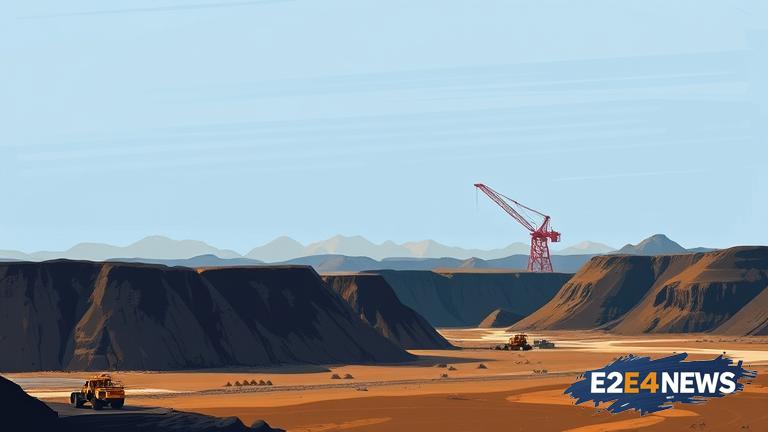The Australian mining sector is facing a period of uncertainty and upheaval, with the recent announcement of job losses at the Dartbrook mine in the Hunter region sparking concerns about the industry’s future. Former Deputy Prime Minister Barnaby Joyce has weighed in on the issue, calling for fast-tracked approvals for new mines in the region to help mitigate the impact of the job losses. The Dartbrook mine, which is owned by Australian Pacific Coal, announced that it would be ceasing operations and cutting jobs due to a decline in coal prices and increasing competition from overseas markets. The move has been met with criticism from local workers and community leaders, who argue that the mine’s closure will have a devastating impact on the local economy. Joyce, who has long been a vocal supporter of the mining industry, has argued that the key to revitalizing the sector lies in streamlining the approval process for new mines. He claims that the current system is too slow and bureaucratic, and that it is preventing new projects from getting off the ground. By fast-tracking approvals, Joyce believes that new mines can be brought online more quickly, creating new jobs and stimulating economic growth. However, not everyone is convinced that Joyce’s plan is the right solution. Some environmental groups have expressed concerns that expedited approvals could lead to a lack of scrutiny and oversight, potentially resulting in environmental damage and other negative consequences. Despite these concerns, Joyce remains committed to his plan, and has called on the government to take action to support the mining industry. The issue is likely to be a major point of contention in the lead-up to the next federal election, with both major parties likely to be pressed for their views on the matter. The mining sector is a significant contributor to the Australian economy, and the government will be keen to demonstrate its support for the industry. However, it will also need to balance this with concerns about the environment and the impact of mining on local communities. As the debate continues to unfold, one thing is clear: the future of the Australian mining sector hangs in the balance. The government will need to carefully consider its options and work to find a solution that supports the industry while also protecting the environment and local communities. The Dartbrook mine closure is just the latest in a series of challenges facing the mining sector, which has been struggling to cope with declining commodity prices and increasing competition from overseas markets. The industry has also been impacted by a range of other factors, including changes to government policies and regulations, and shifting community attitudes towards mining. Despite these challenges, the mining sector remains a vital part of the Australian economy, and the government will be keen to support its growth and development. However, this will require a nuanced and multifaceted approach that takes into account the complex array of factors at play. The fast-tracking of mine approvals is just one potential solution, and it will be important to carefully consider the potential risks and benefits of such a move. As the government weighs its options, it will be important to engage with a range of stakeholders, including local communities, environmental groups, and industry representatives. By working together, it may be possible to find a solution that supports the mining industry while also protecting the environment and local communities. The issue is a complex and contentious one, and it will require careful consideration and consultation to resolve. The government will need to be mindful of the potential consequences of its actions, and work to find a solution that balances the competing interests at play. The future of the Australian mining sector is uncertain, but one thing is clear: the government will play a critical role in shaping its future. The Dartbrook mine closure is a stark reminder of the challenges facing the industry, and the need for a comprehensive and nuanced approach to supporting its growth and development. As the debate continues to unfold, it will be important to keep a close eye on developments and to consider the potential implications of any proposed solutions. The mining sector is a significant contributor to the Australian economy, and its future will have important implications for the country as a whole. The government will need to work carefully to find a solution that supports the industry while also protecting the environment and local communities. This will require a detailed and nuanced approach, one that takes into account the complex array of factors at play. The fast-tracking of mine approvals is just one potential solution, and it will be important to carefully consider the potential risks and benefits of such a move. As the government weighs its options, it will be important to engage with a range of stakeholders and to consider the potential consequences of its actions. The future of the Australian mining sector hangs in the balance, and the government will play a critical role in shaping its future.
